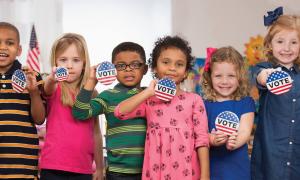author
H. Roy Kaplan
Kaplan teaches in the Africana Studies Department at the University of South Florida, Tampa. He was the Executive Director of the National Conference of Christians and Jews for Tampa Bay and served as an advisor to President Clinton’s race relations task force. In 1998, he received a National Hero of Education Award from the U.S. Department of Education for his multicultural work in Florida schools. His most recent book is The Myth of Post-Racial America.


